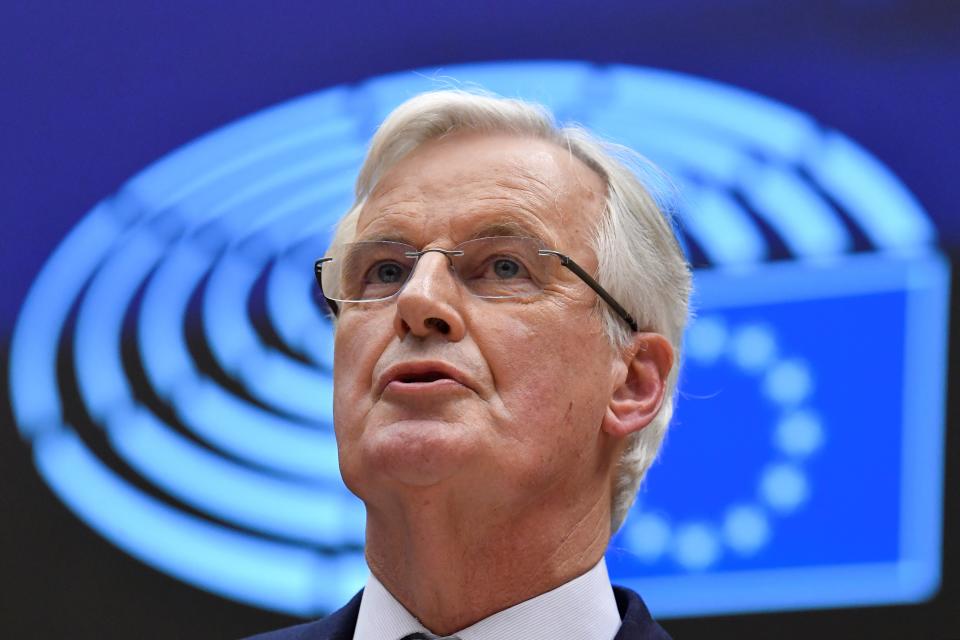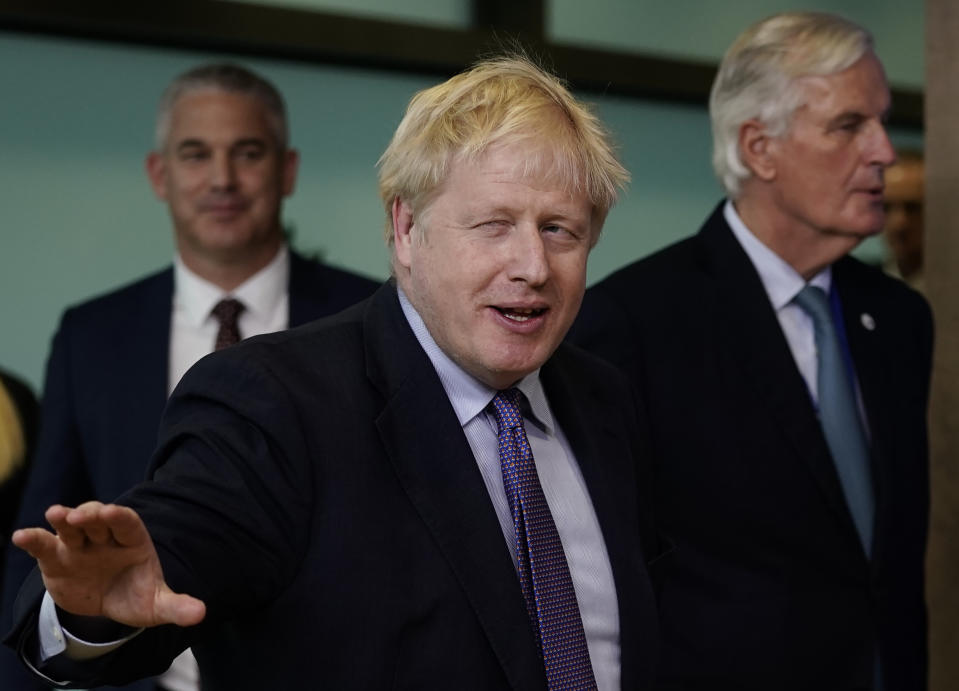EU offers UK 'best in class' trade deal but wants fishing access

The European Union (EU) is ready to offer the UK a “best in class” free trade deal, so long as Britain adheres to EU rules and shares its waters with European fishermen.
The EU on Monday published the draft negotiating guidelines for trade talks with the UK, two days after Britain officially left the bloc.
Michel Barnier, the European Commission’s chief Brexit negotiator, called the proposals “best in class” but said the UK must adhere to EU demands on fishery rights and competition if it wants to secure all that is being offered.
READ MORE: Pound slides as Johnson threatens hard Brexit
“We are ready to offer a highly ambitious trade deal as the central pillar of this partnership, including zero tariffs and zero quotas on all goods entering our single market of 450 million people,” Barnier told journalists.
“We are ready to offer all this even though we know that there will be strong competition between the UK, our immediate neighbour, and the EU in the future. Competition is normal. But because of our geographical proximity and economic interdependence, our mandate also makes clear that this exceptional offer is conditional on at least two things.”
Barnier said the UK must agree to a “level playing field” with EU firms on competition, with “specific and effective” guarantees to uphold social, environmental, climate, tax, and state aid rules.
The UK must also agree to “continued reciprocal access to [fishery] markets and to water with stable quota shares,” Barnier said.

The demands are likely to prove a flashpoint in negotiations. Cabinet minister Michel Gove last month pledged to take the UK out of the EU’s Common Fisheries Policy and the issue of control over British waters was a key topic during the Brexit debate. Chancellor Sajid Javid last month also declared there would no alignment with EU rules.
Barnier said a failure to copy EU rules on things like state aid and workers’s rights would lead to more restricted access to the EU’s Single Market.
“The more we have common standards, the higher quality access the EU will be able to offer to its markets,” he said.
“But this will be up to the UK to decide — will it continue to adhere to Europe’s societal and regulatory model in the future or will it seek to diverge? The UK’s answer to this question will be fundamental to the level of ambition of our future relationship.”
READ MORE: Firms demand 'seat at the table' in post-Brexit trade deals
Frenchman Barnier also warned that even the most ambitious trade deal could not replace the benefits of full membership of the EU, pointing out that Brexit would lead to more paperwork for firms and checks of goods.
“Even if we do achieve a best in class free trade agreement, it will not be business as usually,” he said. “We will have two separate markets instead of one single market. Rules of origin and customs formalities will apply between the UK and EU. There will be no harmonisation or mutual recognition of rules.”
Barnier called new checks “the automatic and mechanical consequences of the UK’s choices” and said: “Businesses must adapt now to this new reality.”
Britain will on Monday set out its negotiating position for EU trade talks. UK prime minister Boris Johnson is expected to call for a Canada-style zero tariff and zero quota deal, but threaten to walk away from talks without a deal if the EU doesn’t agree to the UK’s demands.
The EU and UK have until 31 December 2020 to strike a new trade deal. European leaders will approve the draft trade proposals later this month, with talks between the EU and UK expected to begin early next month.
READ MORE: Britain has officially left the EU — here's what happens now

 Yahoo Finance
Yahoo Finance 